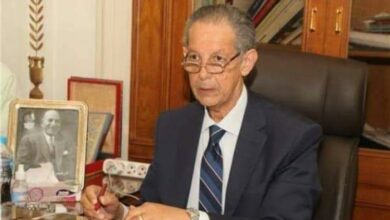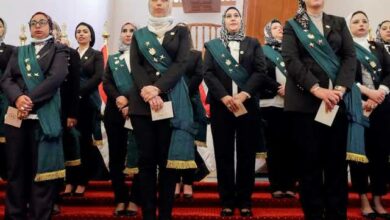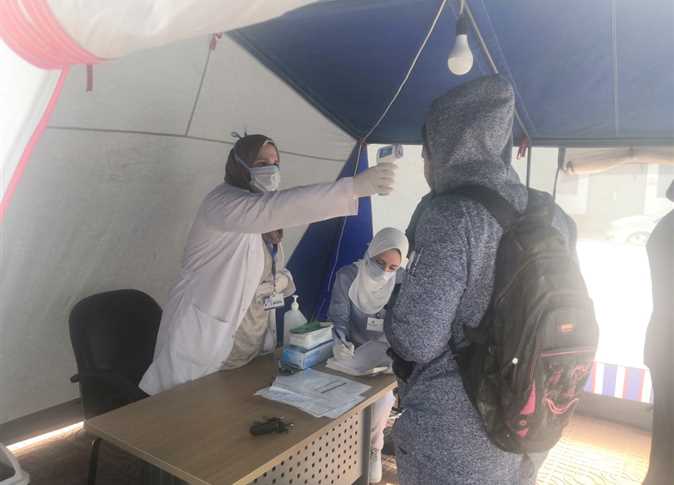Judges' difficulties monitoring the electoral process — from trouble protecting ballot boxes, being attacked inside voting booths and irregularities in the counting process — are the focus of a report by Al-Shorouk newspaper.
Privately owned Al-Shorouk reports that these problems occurred at all polling stations. Ahmed al-Kennawy, an official with the Judges Club, said, “There is nothing worse than the [voting issues] judges had to deal with in the past couple of days, but they did their job for the good of their country.”
The judges complained that because their assistants left early, they were forced to remain next to the ballot boxes all day with no breaks. Judges also had to spread the ballots out on the floor and count them, due to lack of proper preparation says Al-Shorouk.
State-run Al-Ahram also runs a piece on these conditions, reporting that they were only found in the Matareya and Salam districts.
Projections of election results and reporting on the integrity of the election process are handled differently by Al-Ahram, the independent Al-Tahrir and Al-Shorouk, and the party-run Al-Wafd and Freedom and Justice Party newspapers.
Al-Ahram reports that the new parliament will be diverse. The paper runs a small piece on its front page quoting international observers who said, “Egyptian parliamentary elections excelled in objectivity, transparency and integrity.”
Al-Tahrir projects Islamists in the lead in most rural areas, with the Egyptian Bloc and the Revolution Continues coalitions in the lead in more upscale neighborhoods. An article on its third page accuses Islamist parties of various electoral violations.
Al-Tahrir quotes Diaa Rashwan, head of Al-Ahram Center for Political and Strategic Studies, as saying, “These violations took place in the first round and are expected to decrease in the second and third rounds." Rashwan pointed out that violations were largely due to poor organization by electoral authorities.
A projected winner from the Salafi-led Nour Party, Abdel Moneim al-Shahhat, claimed Christians supported his campaign and ensured that Christians will maintain their rights in Egypt, Al-Tahrir reports. Party spokesperson Nader Bakkar is quoted as vowing to uphold this promise “in front of God and in front of [voters].”
Al-Shorouk expresses its surprise at the Nour Party's success over the Muslim Brotherhood's Freedom and Justice Party in many districts, as well as the Wafd Party's poor showing in the first round.
Emad Eddin Hussein, in an Al-Shorouk column, attributes the Freedom and Justice Party's success to poor campaigning by other political parties, voter confusion, and a lack of organization in the political process over the last few months. Hussein says that since the process of forming political parties and the elections' timeline and rules were unclear, parties and candidates were not as prepared as they should have been.
Al-Tahrir is also surprised by the Wafd Party's results, describing them as incongruent with its strong and persistent campaign.
The Al-Wafd paper devotes its entire issue to alleging electoral violations. Wafd Party President al-Sayed al-Badawy’s press conference accuses the Coptic Church of using religion to sway Copts to vote for the Egyptian Bloc electoral list. Page 11 runs the headline, “Brotherhood and Copts one hand in burning down Egypt,” reporting that the Brotherhood and Copts used religion in the fight for parliamentary seats. Pages 14 and 15 feature a spread of testimonies from “thugs” who said they had accepted bribes to vote for certain lists.
Al-Wafd's back page details the history of Islamic religious figures’ support for the Wafd Party. The late Sheikh Mohamed Metwally al-Sharawy, a popular Egyptian religious figure known for his moderate Islamic views, supported the Wafd Party, says the report. Sheikh Salah Abu Ismail, father of current presidential candidate Hazem Abu Ismail, the report goes on, “chose Wafd when others let him down.” This is all followed by a small biography of the Wafd Party's political and religious history.
Al-Ahram, Al-Tahrir and Al-Shorouk report that Kamal al-Ganzouri's new cabinet will be announced Thursday.
Al-Tahrir and Al-Shorouk both say that Ganzouri's meetings to select his cabinet have been held in utmost secrecy. However, sources revealed that the new interior minister is expected to be former Giza Security Director Lieutenant Mohamed Ibrahim. Al-Tahrir describes him as “the main actor in the Sudanese refugee massacre that took place in Mostafa Mahmoud Square in 2005.”




